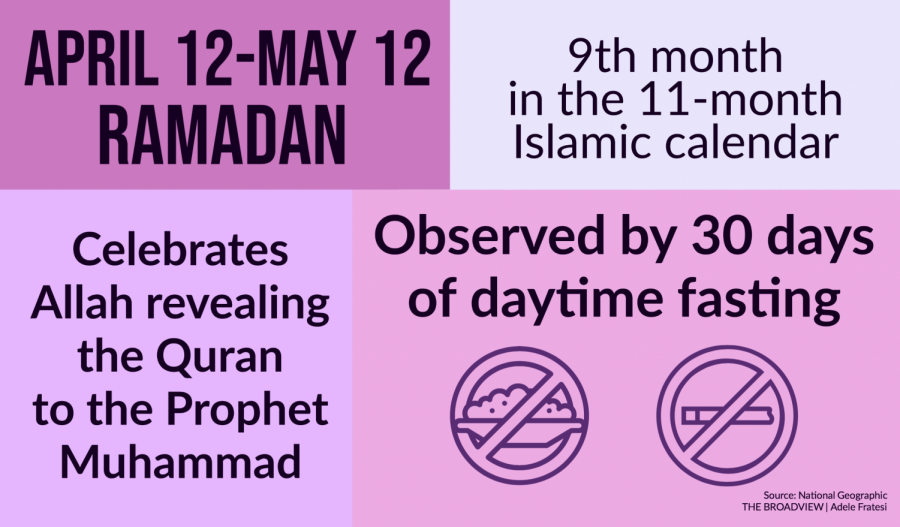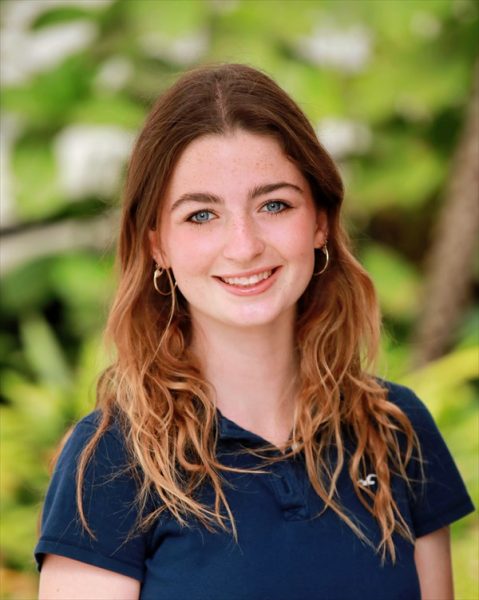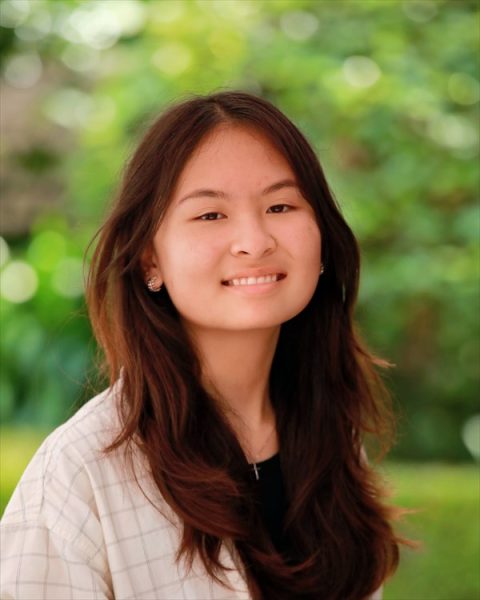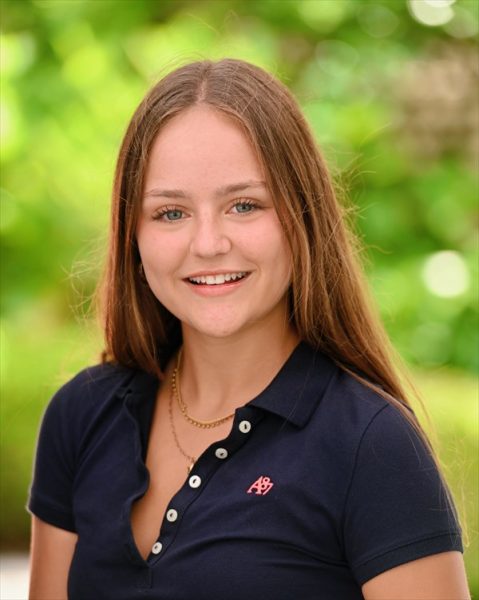Holy month of Ramadan begins
Muslim students fast from sunrise to sunset
April 13, 2021
WEB EXCLUSIVE Some community members will be foregoing lunch lines when they return to campus and opting out of the food program due to Ramadan which began April 13. The holy month prompts Muslims to fast from food, drink and other habits such as smoking and caffeine from sunrise to sunset.
“Ramadan is a month for Muslims to reflect on their faith and for us to feel with the hungry and strengthen our discipline and willpower,” senior Sarah El Qadah said. “The month is also a time for us to strengthen our relationship with God.”
Fasting hours differ worldwide, but generally Muslims consume suhoor, a predawn meal, then break their fast at sunset with water and dates, followed by prayer and iftar, a large evening feast.
“Throughout the month of Ramadan, my family and I gather together to break our fast every night,” El Qadah said. “During pre-COVID times we would gather with family friends weekly and it would really bring our community together.”
Many offices and schools in Muslim-majority countries close early, and in some countries those who eat in public during fasting hours can be fined or jailed – although this is not common.
“I’ve taught at a school in a Muslim-majority country and at schools where that isn’t the case during Ramadan, and it’s an incredibly different experience,” theology teacher Clinton Hackenburg said. “As a non-Muslim in a Muslim-majority country during the holy month, it’s an awkward feeling when everyone around you is fasting, but in my experience Muslims have always been very considerate in easing tensions.”
Some mosques in the Bay Area are open with restrictions, due to COVID-19. Aside from fasting during Ramadan, Muslim adults who are capable are expected to pray five times a day throughout the year. At the Islamic Center of San Francisco, public prayer times are limited to 75 people.
“Celebrating Ramadan at the height of COVID last year, I spent it solely with my immediate family at home and it truly was a beautiful experience,” El Qadah said. “It allowed me to create a stronger bond with my family because we were all motivated to help each other and we definitely improved our self control and strengthened our relationship with God.










